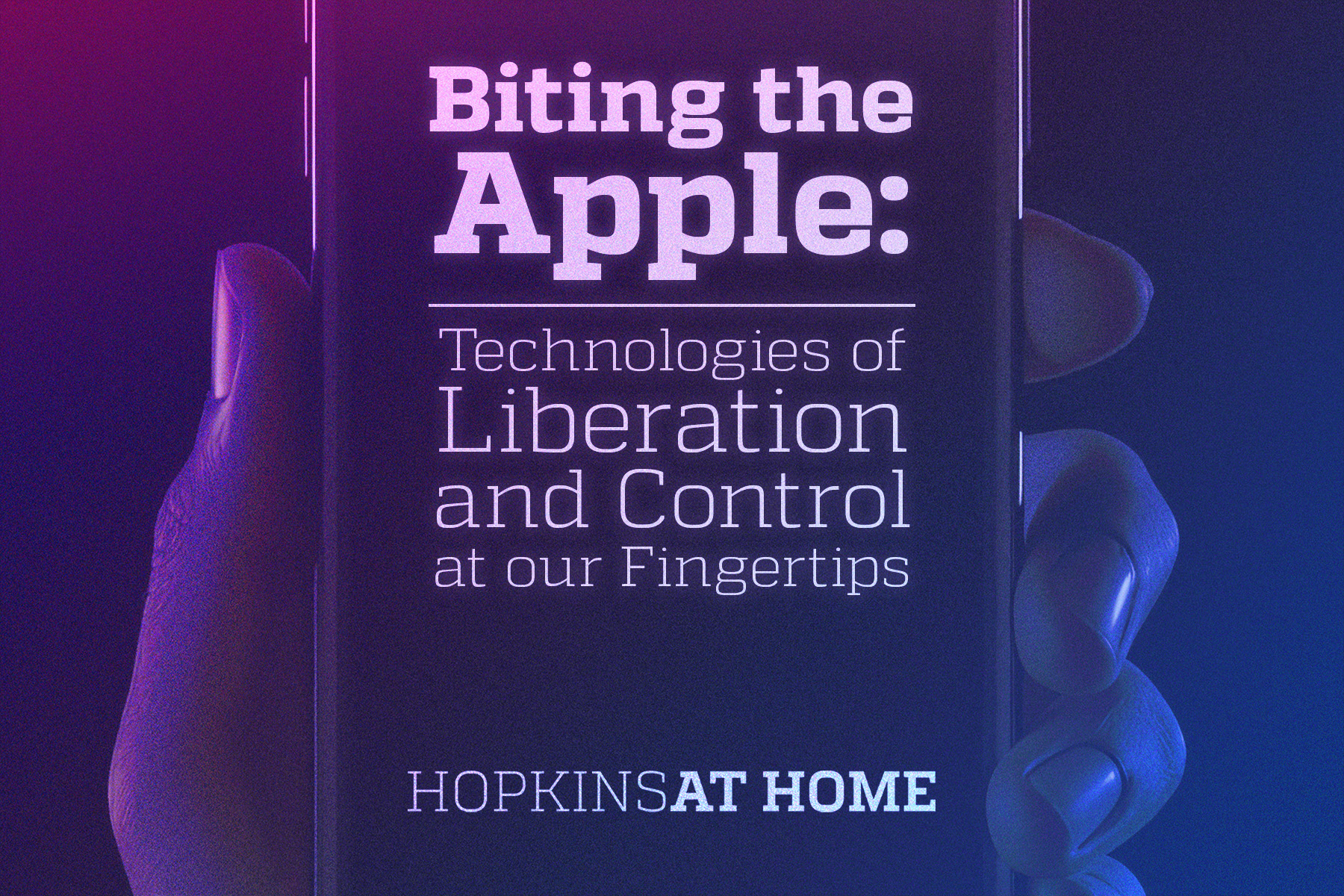Biting the Apple: Technologies of Liberation and Control at our Fingertips

Presented by Hopkins at Home
40 years ago, Apple Inc. released a generation-defining computer, the Macintosh. During the Superbowl, it aired an advertisement pitting the dull conformity of old against a dynamic future created with, you guessed it, Apple products. "You'll see why 1984 won't be like 1984," the commercial's narrator intoned. Since then, Apple's association with the counterculture of the 1970s and its claim to be the producer of tools for an even-brighter tomorrow have shaped public perception of the company. But Apple's history is not so simple. Decades on, it is high time to consider Apple's politics, the status of its products, its corporate culture, and its place in the global economy. Asking these questions will help us consider whether Apple has become the conformist behemoth it once bemoaned in a Superbowl ad...
